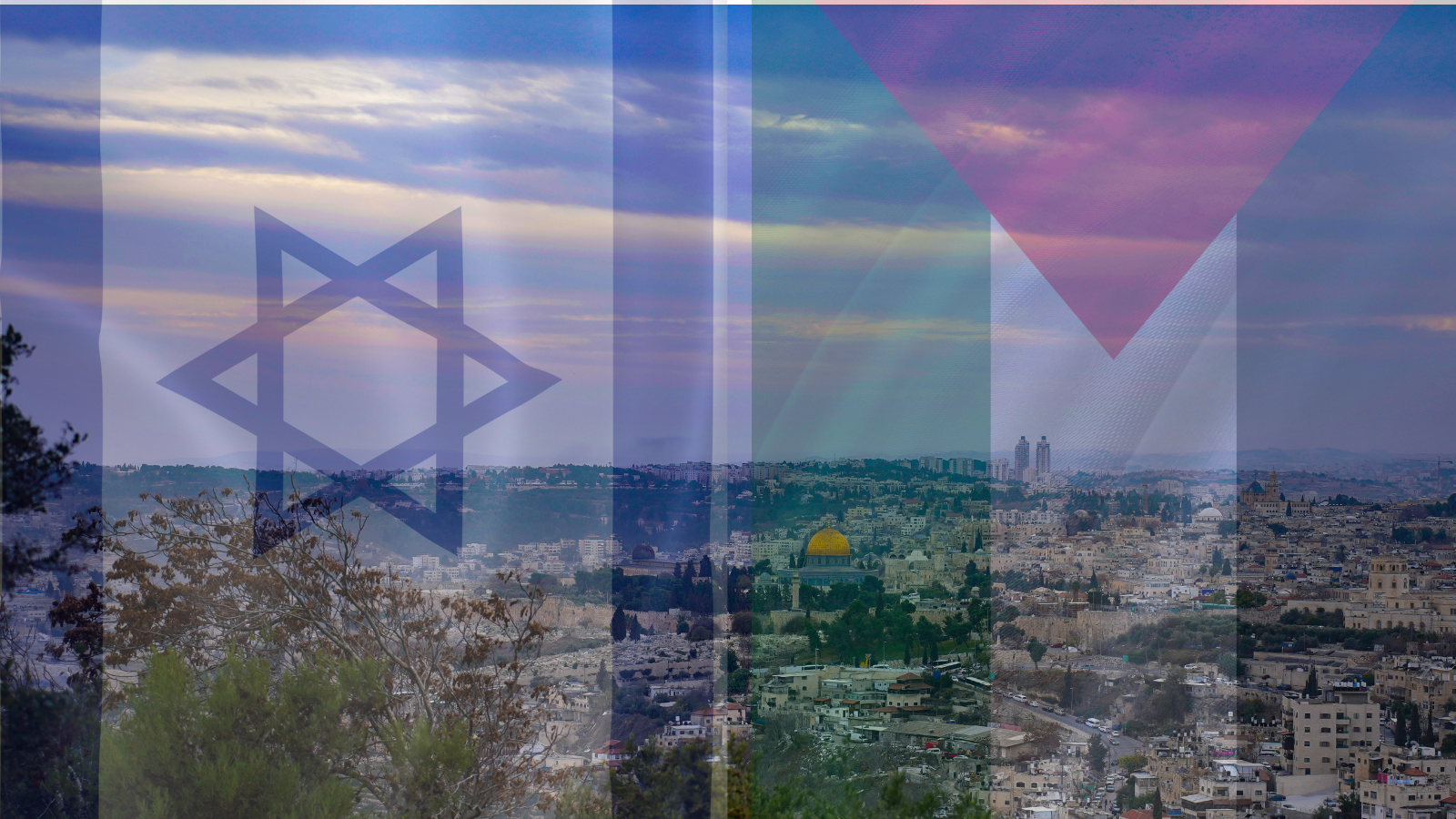The Palestinians have been waiting for a state for a long time. Recognizing the State of Palestine, as several European countries have chosen to do in the recent weeks, is about much more than politics — recognition itself confers dignity. After decades of sacrifice and suffering under occupation, Palestinians long for a future rid of pain, rid of ethnic cleansing, and rid of the ordinary humiliations and unbearable drudgeries of the half life we live in Gaza and the West Bank. What we want is a real Palestinian state where we can live freely and in peace. This isn’t just a dream — it is an expectation passed down through generations, one that was given credence and a voice and a promise of fruition when the Palestinian declaration of independence was drafted in Algeria back in 1988.
The movement for Palestinian self-determination was grounded in historical justice, respect for international law, but the movement stalled and then sputtered out of the public eye. Yet the new political reality forged in the post-October 7th crucible has brought this matter back to the forefront of global discourse — often in a dangerous and misleading frame: it has become fashionable in certain pernicious circles to claim that recognizing a Palestinian state would be a reward for terrorism.
This argument — which is the odious outgrowth of an odious worldview — ignores the principles of justice and legality that govern our international system. Linking a people’s legitimate claim to sovereignty with the actions of a non-state armed group, a terrorist organization which terrorizes its own people, is a gross perversion of logic. A Palestinian state is not owed to Hamas — it is owed to the Palestinian people, represented by the Palestine Liberation Organization (PLO), the sole legitimate political leadership of Palestine.
A state does not lose its right to exist based on the horrific actions of a bloodthirsty leadership. Israel, of all countries, should recognize this. Israelis, of all people, should understand that collectively sentencing an entire nation to homelessness because of the inhumane actions of that people’s leadership would be a grave sin. There is no international legal framework that would sanction such collective punishment. In fact, such punishment would be in violation of the core tenets of international human rights law.
On July 28 of this year a number of European countries announced their intent to recognize Palestine. These were not merely symbolic statements — they marked a historic return to a long-neglected, just political path. In a moment when the two-state solution seemed buried under the ruins of the Hamas-led October 7 attack, this recognition redefined what is politically possible. It asserted that while terrorism must never be rewarded, it also cannot be used as an excuse to deny an entire nation its rights.
Recognition does not ignore the danger posed by Hamas; it is a blow against it. Recognizing a Palestinian state would be the final nail in the coffin of Hamas’ stranglehold on the people of Gaza. This move would implicitly declare that political legitimacy is not built through violence, and that Palestinians have a legal and political identity separate from Hamas which must be buttressed by the international community. None of the countries which made these statements would accept Hamas rule over the future Palestinian State which they hope and expect to see established. Such a state would mark the end of Hamas. It would save Gazans from Hamas’ cruel leadership. All of the countries that announced their intent to recognize the State of Palestine have explicitly condemned Hamas’ terrorist attack on October 7th. They have also called for Hamas to disarm and withdraw from governing Gaza. For the first time, many Arab countries — among them Qatar — have joined Western governments in making this demand.
And Hamas itself has made it clear that any substantive plan to establish a Palestinian State alongside Israel will require different Palestinian leadership.
In 2017, contrary to how many have attempted to portray Hamas’ revised charter, the movement did not announce its acceptance of a Palestinian state based on the 1967 borders as part of a two-state solution. Article 20 of the 2017 document refers to the establishment of a Palestinian state along the 1967 borders with Jerusalem as its capital and the return of refugees as a “national consensus formula.” In this statement Hamas neither accepted a two-state solution nor recognized Israel, and Hamas has since made clear that it will not renounce its goal of liberating all of Palestine “from the river to the sea.” The movement emphasized that any interpretation suggesting recognition of Israel or abandonment of its original charter was a misunderstanding of its intent. The 1967 borders, for Hamas, represent a temporary stage — not a resolution.The group has not evolved from its founding ideology, it has simply repackaged itself in pragmatic language. Hamas rejects the Palestinian state that the international community sanctions: a demilitarized state governed by institutions committed to international law and peaceful resolution. Its renunciation of such a state is a de facto renunciation of the right and intent to govern it. In binding itself to its murderous founding ethos, it blunts its right to rule.
Nonetheless, Hamas’ rhetorical games continued following announcements of recognition by various countries. Leaders of the movement sought to frame these recognitions as victories for the organization won through the October 7 attack — an absurd and offensive claim. This spin is nothing more than hollow political theater designed to make it seem as if violence yielded results, when in fact the emerging international consensus is for a demilitarized Palestinian state without space for armed factions like Hamas.

Extremism does not emerge in a vacuum. It is nourished by political disenfranchisement, economic desperation, and the absence of national horizons. The continued denial of Palestinian statehood — and the international community’s failure to enforce a just solution — has created fertile ground for Hamas’ ideology to take root and for its political narrative to gain traction — even though its continued rule in Gaza depends not on popular legitimacy, but on its monopoly over armed power and the absence of viable political alternatives.
Delaying recognition does not punish Hamas — on the contrary, Hamas’ lifetime is only prolonged by stretching on the hellish period in which Gazans are forced into concentrated areas and the overwhelming majority of the Gaza strip is leveled. Hamas will preside for as long as the Israelis continue to negotiate with them. Delaying recognition punishes the brave Palestinian moderates who have committed themselves to diplomacy and who continue to advocate for moderation despite over two years of relentless horror. This delay weakens the forces that chose peace and leaves the political space open for radical voices that gain legitimacy in the absence of justice.
Since the Oslo Accords in 1993, the PLO recognized Israel and accepted a demilitarized Palestinian state based on the 1967 borders. As efforts toward a peace were undertaken, Hamas was founded and began committing acts of terrorism with the purpose of sabotaging the negotiations. Israel’s far right, for its part, lent Hamas a helping hand by assassinating Prime Minister Yitzhak Rabin. In the years that followed, both Hamas and the Israeli right have worked — each in their own way — to derail the peace process and dismantle the two-state solution. What we are witnessing today is the bitter fruit of policies that empowered Hamas while systematically weakening the Palestinian Authority.
It is slanderous to repeat that Palestinians consistently rejected statehood, and no less slanderous to say that the Gaza Strip ever constituted a Palestinian state and that it serves as evidence of Palestinian failure. These assertions are baseless.
There may never be a “perfect” time to recognize Palestine — but there are critical moments that demand moral courage and strategic clarity. And the people of Gaza have never been in greater need of international intervention. They need help. They need rescuing — and not only from Israel, from Hamas too. Recognizing a Palestinian State is not a reward for violence; it is the necessary conclusion of a sincere dedication to just statecraft. Strategically, recognition also increases pressure on Israel to reassess its policies and eliminates the excuse that “there is no Palestinian partner for peace.” That partner exists — the Palestinian Authority, the leadership of which embodies strategic moderation far worthier than any exemplified by the current Knesset leadership — ready, in principle, to work toward building a Palestinian state that can live side by side with Israel. The international community can see this, even if it acknowledges that the Authority requires deep institutional reform and a revitalization of its governance structures.
Recognizing Palestine is the necessary expression of commitment to the principle of equal rights. It reminds the world that security is not achieved by genocidal destruction but through mutual recognition. It enhances stability, it undercuts extremism, it is the only solution that will yield safety for anyone, and it just so happens that it is also the only solution that will yield safety for everyone.
Recognizing Palestine is not the end of the conflict — it is the beginning of a new political path. It will pave the way for a new reality. The last century saw the ends and beginnings of entire worlds. Innumerable peoples lived a life at the start of the 20th century that their grandchildren could never imagine. Existence itself changed. It is possible for bleeding worlds to be buried and forgotten. It is possible for hope and political prudence to fuse and forge a future worth living for, a future of hope, a future where children expect the sun to rise and set without the sounds of sirens or the sight of bludgeoned corpses.
A Palestinian state is not the reward for terror — it is the greatest single antidote to terror’s reign.

